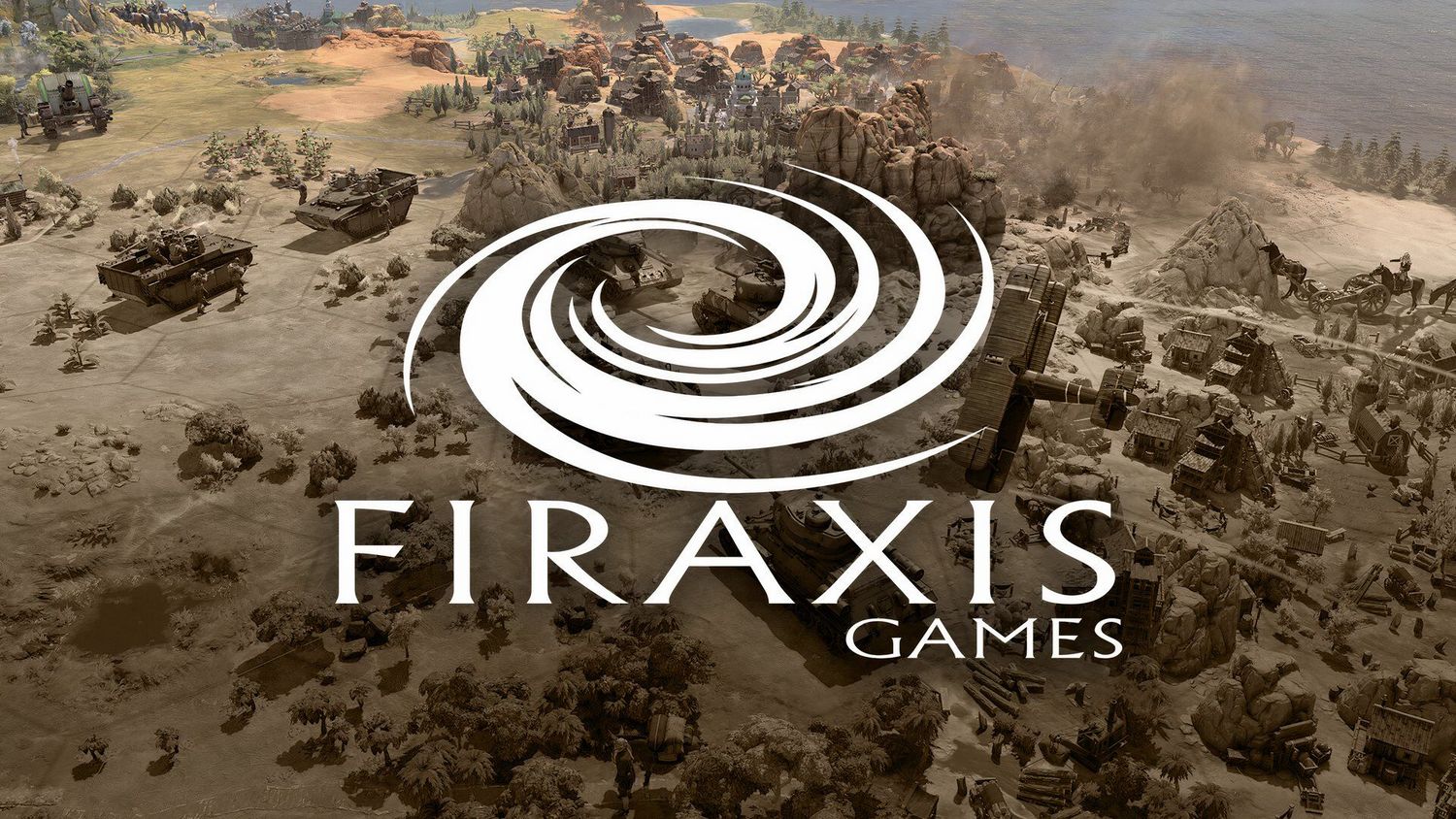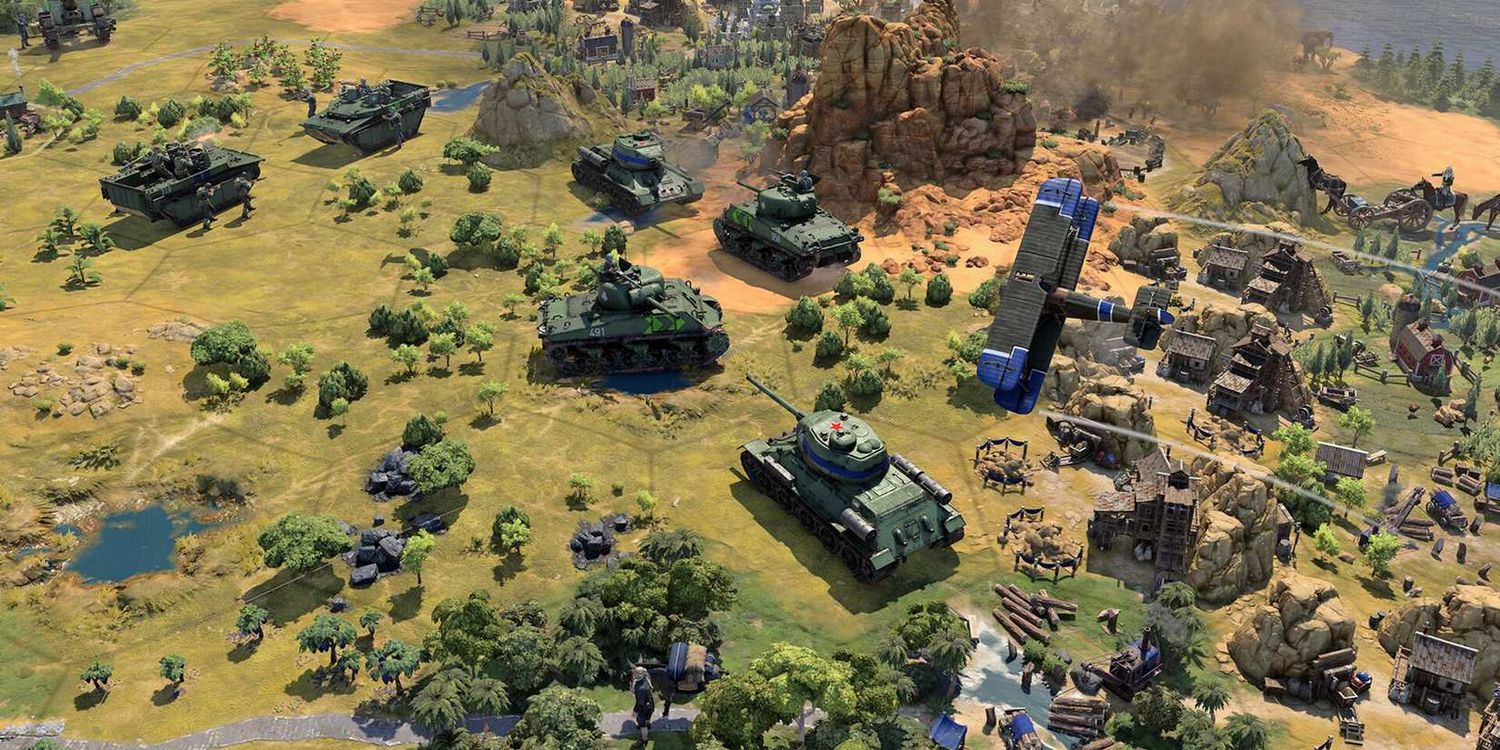Firaxis Games Confirms Layoffs: The Latest Blow to the Gaming Industry
Popular Now
 Rust
Rust
 Warframe
Warframe
 Minecraft
Minecraft
 Brawl Stars
Brawl Stars
 Candy Crush Saga
Candy Crush Saga
 Grand Theft Auto V
Grand Theft Auto V
 Roblox
Roblox
 Free Fire
Free Fire
 Garena Free Fire: Kalahari
Garena Free Fire: Kalahari
 Sonic the Hedgehog™ Classic
Sonic the Hedgehog™ Classic
 In a significant and somber development, Firaxis Games, the renowned studio behind the beloved Civilization and XCOM franchises, has confirmed a “staff reduction” impacting an unspecified number of employees. The news, which surfaced through social media posts from laid-off staff, has sent a ripple of concern through the gaming community and marks another distressing chapter in the ongoing trend of game industry layoffs.
In a significant and somber development, Firaxis Games, the renowned studio behind the beloved Civilization and XCOM franchises, has confirmed a “staff reduction” impacting an unspecified number of employees. The news, which surfaced through social media posts from laid-off staff, has sent a ripple of concern through the gaming community and marks another distressing chapter in the ongoing trend of game industry layoffs.
The cuts come just months after the release of Civilization VII, a game that has seen a mixed reception from players. While the specific number of affected personnel has not been disclosed by the company, reports suggest that dozens of workers, including key roles like writers, animators, and systems engineers, have been impacted. This move has raised serious questions about the future of Firaxis and the state of its flagship titles, as well as the broader economic climate for PC gaming and AAA game development.
 The Context: A Turbulent Time for Game Developers
The Context: A Turbulent Time for Game Developers
Firaxis’s decision to downsize is not an isolated event. It is part of a larger, more troubling pattern that has gripped the video game industry over the past few years. Layoffs at major studios have become a frequent and unsettling headline, affecting thousands of talented professionals. This trend is often attributed to a confluence of factors, including post-pandemic over-hiring, rising development costs, and fierce competition in a saturated market. Even financially successful companies, like Take-Two Interactive—Firaxis’s parent company—have not been immune to these cuts, a fact that highlights the volatile nature of the business.
According to a spokesperson from publisher 2K, the layoffs are part of a restructuring effort to “optimize” the studio’s development process for “adaptability, collaboration, and creativity.” This corporate jargon has been met with skepticism and criticism from the gaming community and former employees, who see it as a hollow justification for job cuts. For many, these phrases ring hollow when the very people who contributed to the studio’s legacy are being let go.
 Impact on Civilization VII and Future Projects
Impact on Civilization VII and Future Projects
The timing of the layoffs is particularly noteworthy, occurring so soon after the launch of Civilization VII. The game’s reception has been a point of contention among fans, with some criticizing its user interface and core gameplay changes. Firaxis has been actively releasing patches and updates to address these concerns, and 2K has affirmed its commitment to the game’s long-term support. However, with key staff members departing, the pace and quality of future content, including potential expansions and DLC, could be significantly affected. The strategy genre, particularly a complex 4X game like Civilization, relies on continuous updates and community feedback, and a reduction in a skilled workforce could impede this process.
The question of how these cuts will affect Firaxis’s other major franchises, such as XCOM, also looms large. The studio has a rich history of producing critically acclaimed turn-based strategy games, and the loss of experienced talent could impact the development timeline and creative direction of any unannounced projects. Fans have been eagerly awaiting news on a potential XCOM 3, and these recent events may dampen expectations for the foreseeable future.
 Beyond the Headlines: A Deeper Look at the Industry’s Challenges
Beyond the Headlines: A Deeper Look at the Industry’s Challenges
The Firaxis layoffs serve as a potent reminder of the fragility of even the most established game development studios. The industry’s business model is often cyclical, with hiring peaks during a game’s development and subsequent reductions after launch. However, the current wave of cuts feels more systemic and widespread. The rising cost of creating a video game in today’s market, often reaching hundreds of millions of dollars for AAA titles, places immense pressure on studios to achieve blockbuster sales. When a game, even a good one, falls short of internal financial projections or faces criticism, it can trigger a domino effect of cost-cutting measures, with employee jobs often being the first to go.
Furthermore, the increased focus on live-service games and long-term monetization has changed the landscape of game development. While some titles thrive in this model, others struggle to find a sustainable audience. The risk associated with a new IP is higher than ever, pushing studios to rely on established franchises, even if they must undergo internal restructuring to “optimize” their processes. The tragic irony is that this optimization often comes at the cost of the very people who make the games and build the communities that sustain them.
The Future: A Call for Stability and Creative Investment
For now, the focus remains on the individuals affected by these layoffs. The game development community is a tight-knit network, and many former Firaxis employees have already begun sharing their portfolios and seeking new opportunities. Support from peers and other studios is crucial during this difficult time.
The situation at Firaxis should serve as a wake-up call for the broader industry. A business strategy that prioritizes short-term financial gains at the expense of long-term talent retention is not sustainable. The best and most innovative games are built by stable, creative teams with a shared vision. To foster a healthier and more robust industry, publishers and developers must find ways to mitigate the risk of development, invest in their human capital, and move away from a culture of constant restructuring and job insecurity. The legacy of Firaxis is one of strategic excellence and creative innovation; it is a legacy that deserves a more secure foundation.










